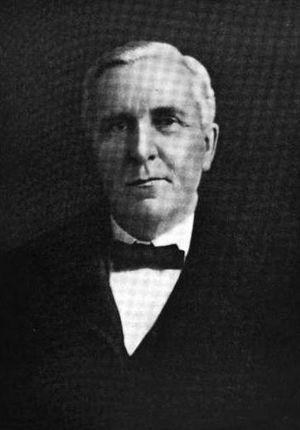Charles H. Prince facts for kids
Quick facts for kids
Charles H. Prince
|
|
|---|---|
 |
|
| Member of the U.S. House of Representatives from Georgia's 5th district |
|
| In office July 25, 1868 – March 3, 1869 |
|
| Preceded by | American Civil War |
| Succeeded by | Stephen A. Corker |
| Personal details | |
| Born |
Charles Henry Prince
May 9, 1837 Buckfield, Maine, U.S. |
| Died | April 12, 1912 (aged 74) Buckfield, Maine, U.S. |
| Political party | Republican |
| Spouse | Eunice Ann Atwood |
| Children | Ellsworth Prince Charles Henry Prince, Jr. Josephine Louise Prince Lucy Atwood Prince |
| Occupation | politician, banker, postmaster, merchant |
Charles Henry Prince (born May 9, 1837 – died April 3, 1912) was an important American politician. He served as a U.S. Representative for the state of Georgia. He also worked as a banker, postmaster, and merchant during his life.
Contents
Who Was Charles H. Prince?
Charles Henry Prince was a notable figure in American history. He was involved in politics and public service. He lived during a time of great change in the United States. This included the period after the American Civil War.
Early Life and Family
Charles Henry Prince was born on May 9, 1837, in Buckfield, Maine. His parents were Noah Prince and Sarah Farrar. His father, Noah, was a judge and a politician in Maine. Noah Prince even led the state senate in 1851.
Charles went to school in Buckfield. After school, he started working in business. He married Eunice A. Atwood on January 30, 1859. Their first son, Ellsworth, was born in 1861. He was named after a famous colonel. In May 1861, Prince became the postmaster of Buckfield, Maine. A postmaster is in charge of a local post office.
Service During the Civil War
In September 1862, Charles Prince joined the Union Army. He was made a captain in Company C. This company was part of the Twenty-third Regiment, Maine Volunteer Infantry. He served until his unit was disbanded in July 1863.
Life and Politics in Georgia
In 1866, Prince moved to Augusta, Georgia. He first worked as a cashier at the Freedman's Savings Bank. This bank helped formerly enslaved people. Later, he became a state superintendent of education. He worked for the American Missionary Association (A.M.A.). His wife also worked as a missionary for the A.M.A. in Georgia.
Prince also helped the Augusta Institute when it was first starting. This school later became Morehouse College. In 1868, he was a delegate to Georgia's state meeting. This meeting helped write a new state constitution.
Serving in Congress
When Georgia was allowed to send representatives to Congress again, Prince was elected. He was a member of the Republican Party. He served in the Fortieth Congress. His term began on July 25, 1868, and ended on March 3, 1869.
Prince tried to serve in the next Congress too. However, he was not allowed to. Congress decided that the members elected in 1868 could not serve in the next term without a new election.
Postmaster and Political Friendships
On March 2, 1870, Prince was appointed postmaster of Augusta, Georgia. Senator Hannibal Hamlin from Maine helped him get this job. Prince was reappointed to this position in 1874 and 1878.
Some people called Prince a "carpetbagger." This was a term used for Northerners who moved to the South after the Civil War. They were often seen as trying to profit from the South's struggles. Despite this, Prince became friends with Alexander H. Stephens. Stephens had been the Vice President of the Confederate States of America. This was unusual because they had different political views.
Prince also attended the Republican National Conventions. These are meetings where the Republican Party chooses its presidential candidate. He went in 1872, 1876, and 1880.
Return to Maine
In 1882, Charles Prince moved back to Buckfield, Maine. He went back to working in business. He worked in the insurance business and made brushes. In 1901, he served as a member of the Maine State Senate.
Charles Prince died in Buckfield, Maine, on April 3, 1912. He passed away from heart disease. He was buried in the Buckfield Village Cemetery. He was survived by his wife and three of his four children.
 | William M. Jackson |
 | Juan E. Gilbert |
 | Neil deGrasse Tyson |

